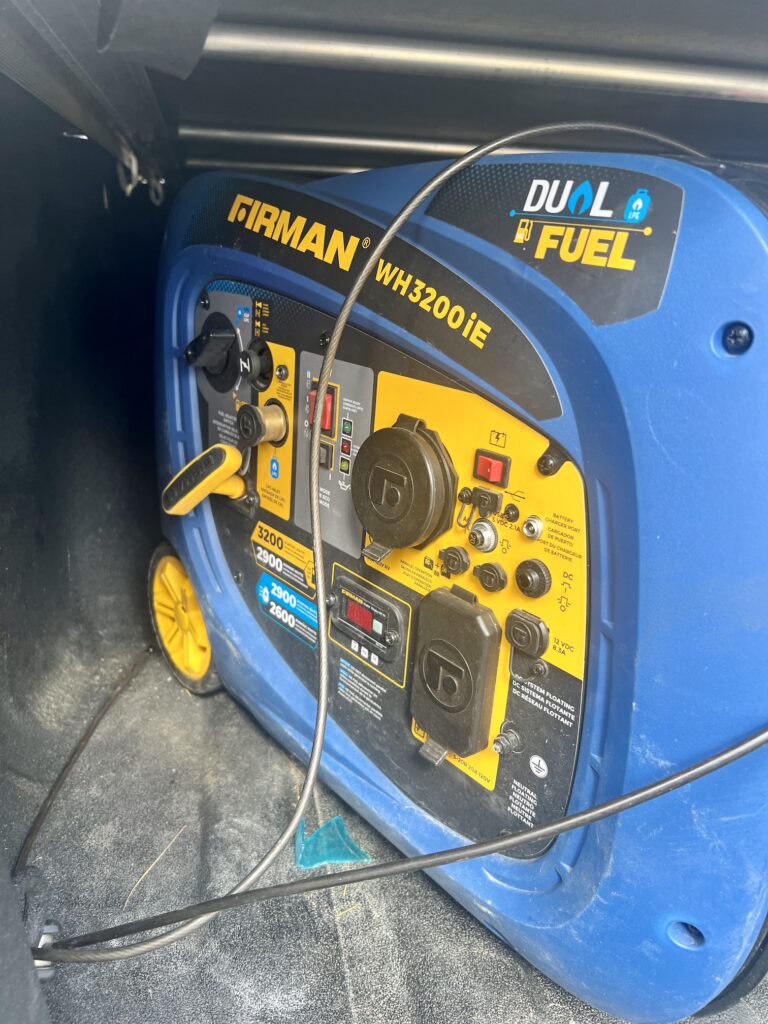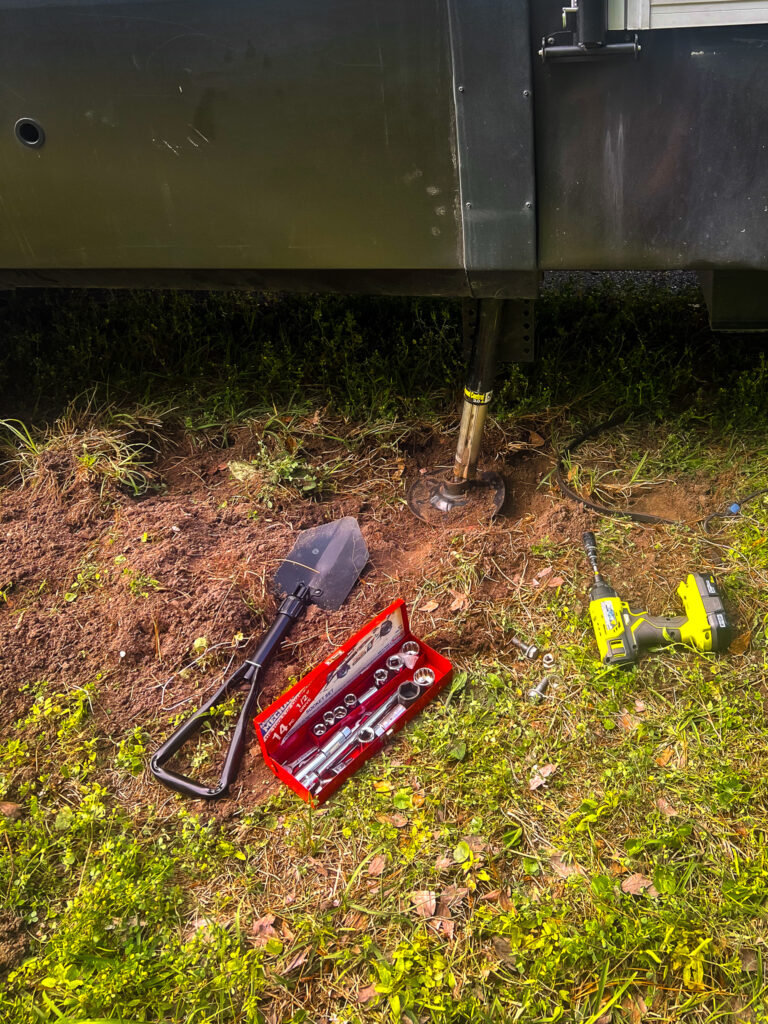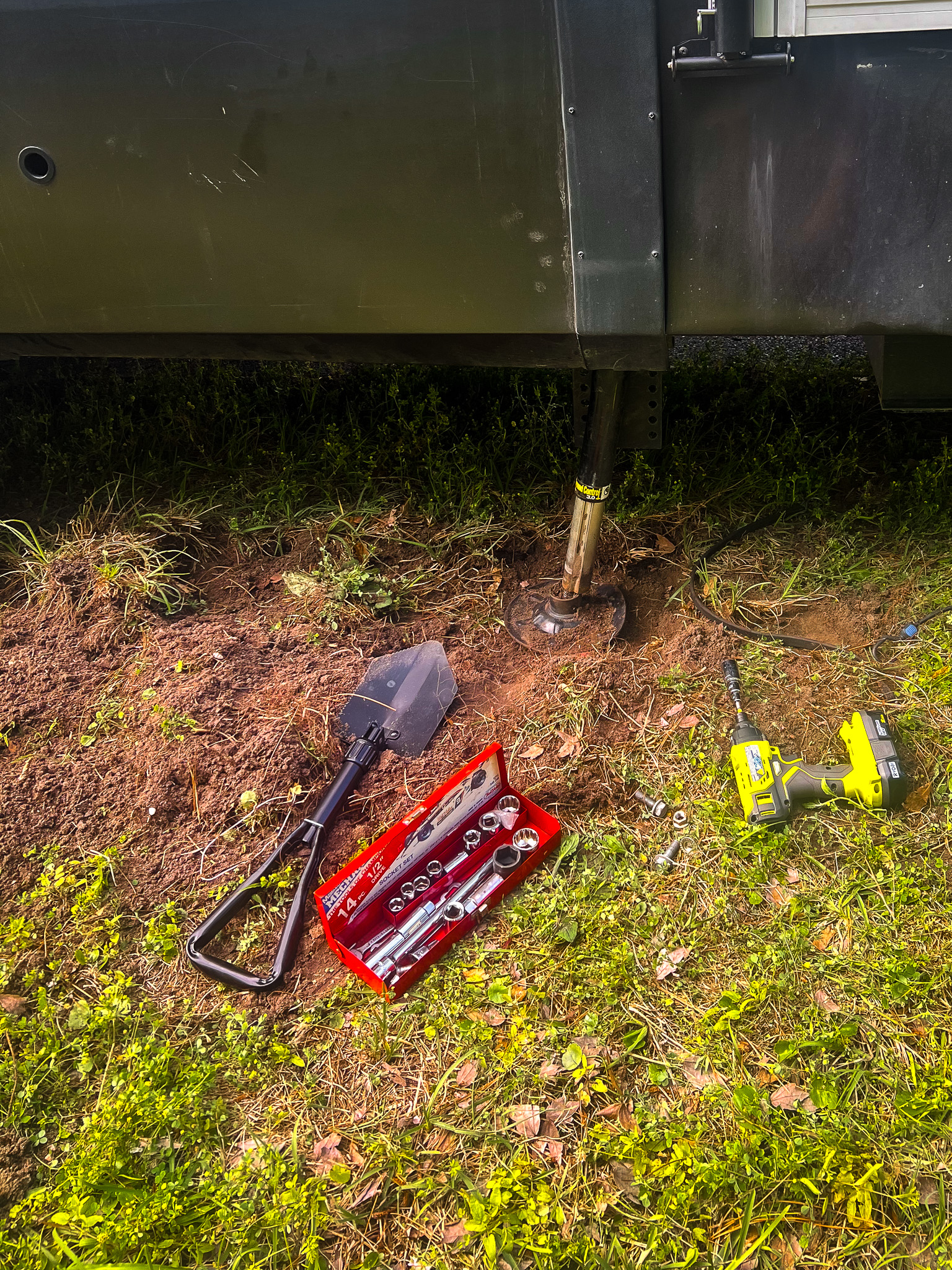Traveling full-time in an RV offers a unique sense of freedom and adventure, allowing families to explore new destinations, create unforgettable memories, and immerse themselves in the great outdoors.
However, with this lifestyle comes the responsibility of being prepared for emergencies. Whether it’s bad weather, mechanical issues, or unexpected health concerns, having a solid emergency preparedness plan is crucial for ensuring your family’s safety and well-being.
In this blog post, we’ll cover essential emergency preparedness for RVers tips and strategie. From having a generator ready to go to creating a comprehensive emergency plan, these guidelines will help you navigate any situation with confidence and peace of mind.
1. Weathering the Storm: Preparing for Bad Weather
Bad weather can strike unexpectedly, and being caught unprepared can turn a fun adventure into a stressful ordeal. Here’s how to stay ready:
Stay Informed:
- Always check the weather forecast for your destination and along your route. Use reliable weather apps and websites like Weather.com or the National Weather Service.
- Invest in a weather radio that can provide alerts in areas with poor cell service.
Create a Safe Space:

- Identify safe places to park during severe weather, such as campgrounds with storm shelters or locations away from flood-prone areas.
- Ensure your RV is parked on stable ground and away from large trees or power lines that could fall during a storm.
Have a Generator Ready:
- A generator can be a lifesaver during power outages. Make sure it’s in good working condition and you have enough fuel to run it for several days.
- Familiarize yourself with safe generator use, including proper ventilation to avoid carbon monoxide poisoning.
Stock Up on Supplies:
- Keep an emergency kit in your RV with essentials like bottled water, non-perishable food, flashlights, batteries, a first aid kit, and extra blankets.
- Ensure you have enough medications and supplies for at least a week.
2. Mechanical Failures: Keeping Your RV Road-Ready
Breakdowns and mechanical failures can happen to any vehicle, including RVs. Being prepared can minimize the inconvenience and keep you safe:
Regular Maintenance:

- Perform regular RV maintenance including oil changes, brake inspections, tire pressure checks, and fluid level monitoring.
- Keep a log of maintenance and repairs to stay on top of your RV’s condition.
Roadside Assistance:
- Invest in a reliable roadside assistance plan tailored for RVs. Services like Good Sam Roadside Assistance or AAA RV Plus can provide peace of mind.
- Know how to contact your roadside assistance provider and have your membership details easily accessible.
Essential Tools and Spare Parts:
- Carry a basic toolkit with screwdrivers, wrenches, pliers, and duct tape.
- Keep spare parts for common issues, such as fuses, hoses, and light bulbs.
Know How to Troubleshoot:
- Familiarize yourself with common RV issues and basic troubleshooting techniques. YouTube tutorials and RV forums can be valuable resources.
3. Health Emergencies: Ensuring Family Well-being

Health emergencies can be particularly challenging on the road. Being prepared can make a significant difference:
Medical Kit:
- Keep a well-stocked first aid kit in your RV, including bandages, antiseptics, pain relievers, antihistamines, and any prescription medications.
- Include a first aid manual or quick reference guide for emergencies.
Health Records:
- Carry digital or physical copies of important health records for each family member, including allergies, medications, and medical conditions.
- Have a list of emergency contacts and healthcare providers.
Telemedicine:
- Sign up for a telemedicine service that allows you to consult with doctors remotely. This can be a lifesaver for minor illnesses or injuries when you’re far from a medical facility.
Emergency Contacts:
- Know the locations of the nearest hospitals or urgent care centers along your travel route.
- Program emergency contacts into your phone, including local authorities and roadside assistance.
4. Creating a Comprehensive Emergency Plan
Having a detailed emergency plan ensures everyone in the family knows what to do in various scenarios:
Communication Plan:
- Establish a communication plan in case family members are separated. Agree on a meeting place and ensure everyone knows how to use the RV’s communication devices.
- Keep a list of emergency contact numbers, including family, friends, and local authorities.
Evacuation Plan:
- Develop an evacuation plan for different types of emergencies, such as severe weather, fire, or medical issues.
- Practice evacuation drills with your family to ensure everyone knows what to do and where to go.
Document Safety:
- Store important documents (passports, insurance papers, RV registration, etc.) in a waterproof and fireproof container.
- Make digital copies of these documents and store them in a secure cloud service.
Pet Preparedness:
- If you travel with pets, include their needs in your emergency plan. Have a pet emergency kit with food, water, medications, and comfort items.
- Know the locations of nearby pet-friendly shelters or accommodations.
5. Staying Connected and Informed
Staying connected and informed is key to handling emergencies effectively:
Reliable Communication Devices:
- Invest in reliable communication devices such as cell phones, two-way radios, and satellite phones for areas with poor cell service.
- Keep devices charged and have backup power sources like portable chargers or solar panels.
Emergency Alerts:
- Sign up for local emergency alerts and notifications through apps or local government websites.
- Use social media to stay informed about local conditions and connect with other RVers for real-time information.
Community Resources:
- Join RVing communities and forums online. Fellow RVers can provide valuable tips, support, and information during emergencies.
- Participate in local community activities and get to know the residents and other RVers in your area.
Emergency Preparedness for RVers is an essential part of the lifestyle, ensuring that your family stays safe and enjoys the journey no matter what challenges arise. By staying informed, maintaining your RV, being prepared for health emergencies, and having a comprehensive plan in place, you can confidently explore the open road and create unforgettable memories together.
Remember, the key to a successful RV adventure is not just where you go, but how prepared you are for the unexpected.
Safe travels, and may your RV journeys be filled with joy and peace of mind!

